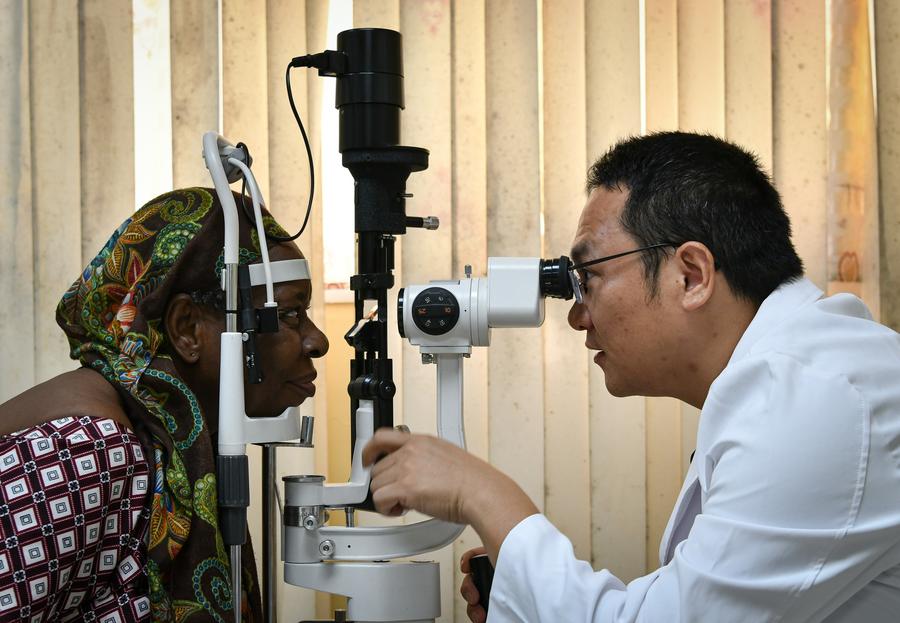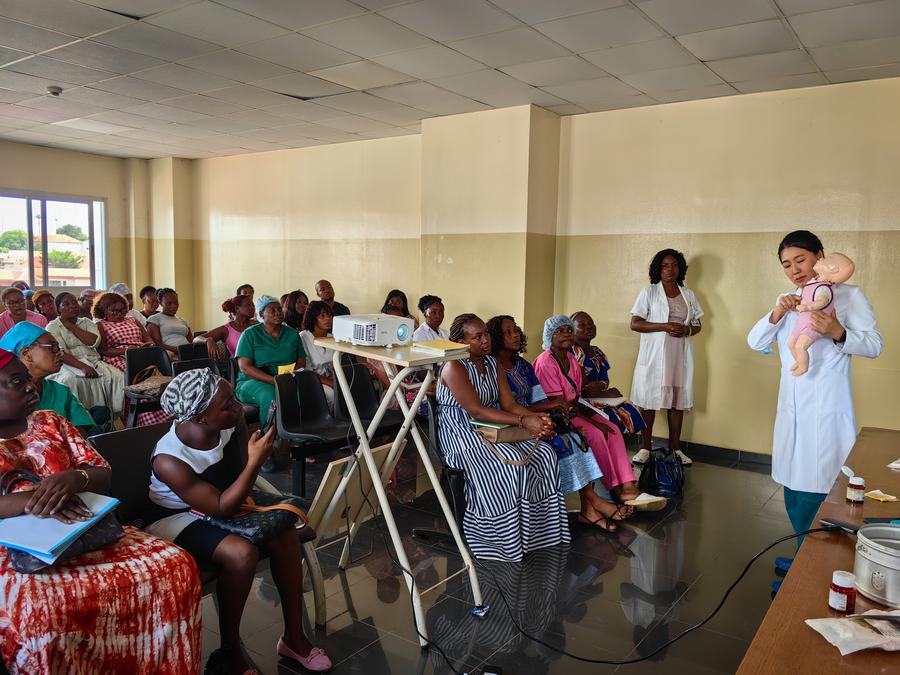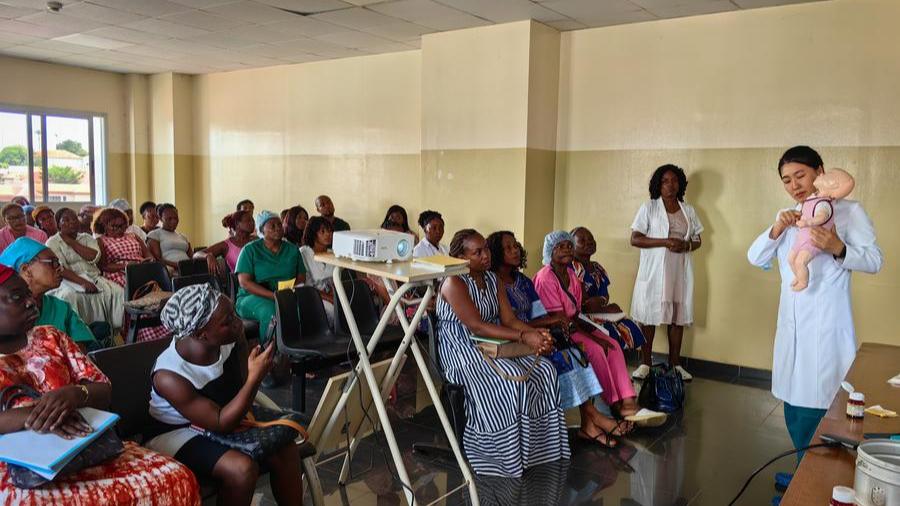
Xie Hongbin (R), an ophthalmologist of the Chinese medical team, examines a patient's eyes at Malabo Regional Hospital in Malabo, Equatorial Guinea, on May 16, 2024. The 33rd batch of Chinese medical team to Equatorial Guinea has been providing medical services for people of Equatorial Guinea since December 2023. (Xinhua/Han Xu)
Since 1971, China has dispatched 33 medical teams to Equatorial Guinea, comprising over 600 personnel.
MALABO, May 29 (Xinhua) -- "When I grow up, I want to be a doctor and to heal and save lives like you," said 14-year-old Benjamin during a follow-up examination with Liu Anwen, a doctor from the 33rd batch of Chinese medical team in Equatorial Guinea.
Just over a month ago, Benjamin was preparing to take his entrance exam for junior high school when he developed a painful hernia. His father, Juan, was deeply concerned. Upon hearing about the exceptional medical skills of Chinese doctors, Juan took Benjamin to Malabo Regional Hospital, where they work.
Although Chinese doctors do not charge for consultations, the hospital fee of 200,000 CFA francs (about 331 U.S. dollars) proved a substantial hurdle for Juan. He could only gather half of the amount. Learning this, Liu and other colleagues from the Chinese medical team personally covered Benjamin's medical expenses and performed a laparoscopic surgery on him.
Benjamin was discharged the next day and able to move freely. He passed his entrance exam days later. "The Chinese doctors are wonderful, and I am very grateful!" he said.

Gao Hang (1st R), an obstetrician of the Chinese medical team, gives a training session to local medical workers at Malabo Regional Hospital in Malabo, Equatorial Guinea, on May 15, 2024. The 33rd batch of Chinese medical team to Equatorial Guinea has been providing medical services for people of Equatorial Guinea since December 2023. (The 33rd batch of Chinese medical team to Equatorial Guinea/Handout via Xinhua)
Reynolds Ondoua Trillo, technical director of Malabo Regional Hospital, said the Chinese doctors introduced techniques like laparoscopy and venipuncture that were unavailable locally. "They patiently and thoroughly teach these techniques to local doctors," said Trillo.
"Previously, we often felt that we couldn't treat certain patients -- they needed to be transferred to another hospital," said Diosdado Batapa, an anesthesiologist from the hospital, "but after training by Chinese doctors, my colleagues and I can independently handle more cases, and we are more confident in treating patients."
Since 1971, China has dispatched 33 medical teams to Equatorial Guinea, comprising over 600 personnel.
The Chinese medical team has garnered recognition and praise from the Equatorial Guinean people for their benevolence and expertise.




 A single purchase
A single purchase









